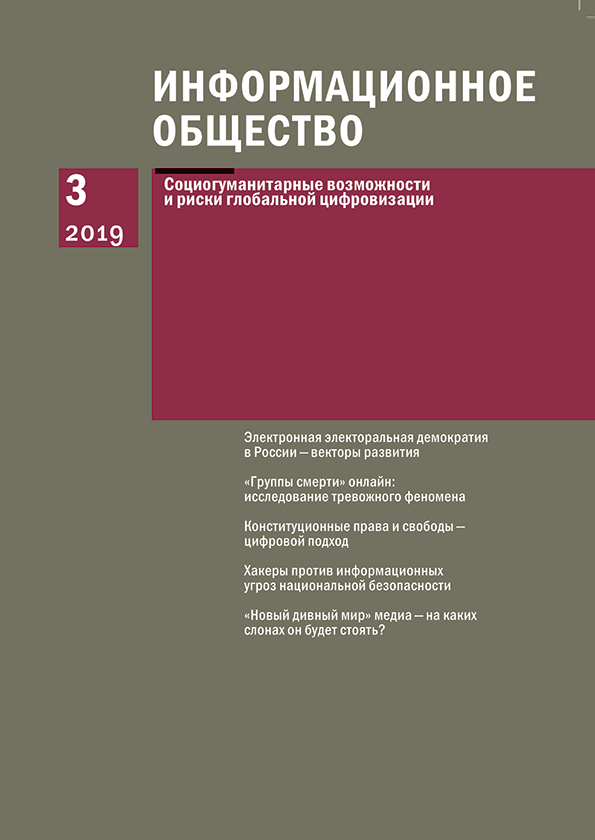Влияние поколения Z на функционирование института медиа: прогностическая модель
Ключевые слова:
медиа, мультимедиа, трансмедиа, журналистика, телевидение, интернет, социальные сети, поколение Z.Аннотация
В статье предлагается научное и прикладное обоснование современных трендов медиапотребления. Оперируя методом вторичного анализа данных, авторы выстраивают прогностическую модель функционирования института медиа под влиянием медиапредпочтений и медиаориентиров поколения Z – молодой аудитории (15-20 лет). Эксплицируются новые типы медийного производства: производители контента и распространители контента. Делается акцент на усиление персонализации контента, адресно удовлетворяющей интересы и запросы узких сегментов аудитории. Определяется, что «новый дивный мир» медиа потребует совсем иных профессиональных качеств от журналистов, которые должны будут иметь не только прикладные (основанные на творчестве), но и технические навыки, чтобы оставаться конкурентоспособными в современной технологической парадигме.
